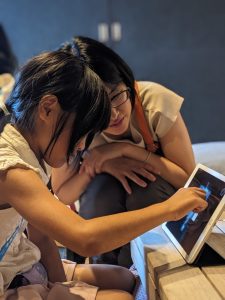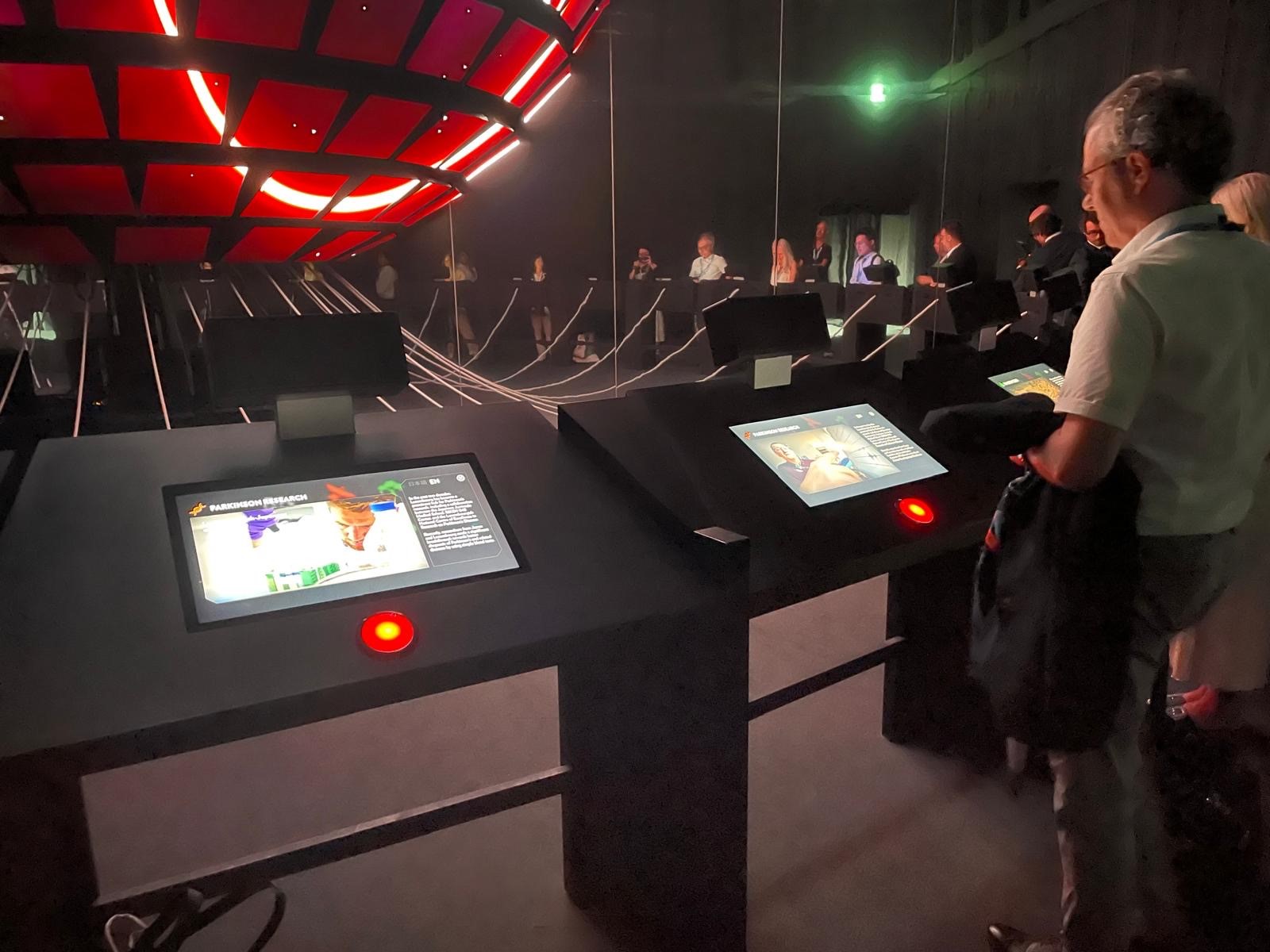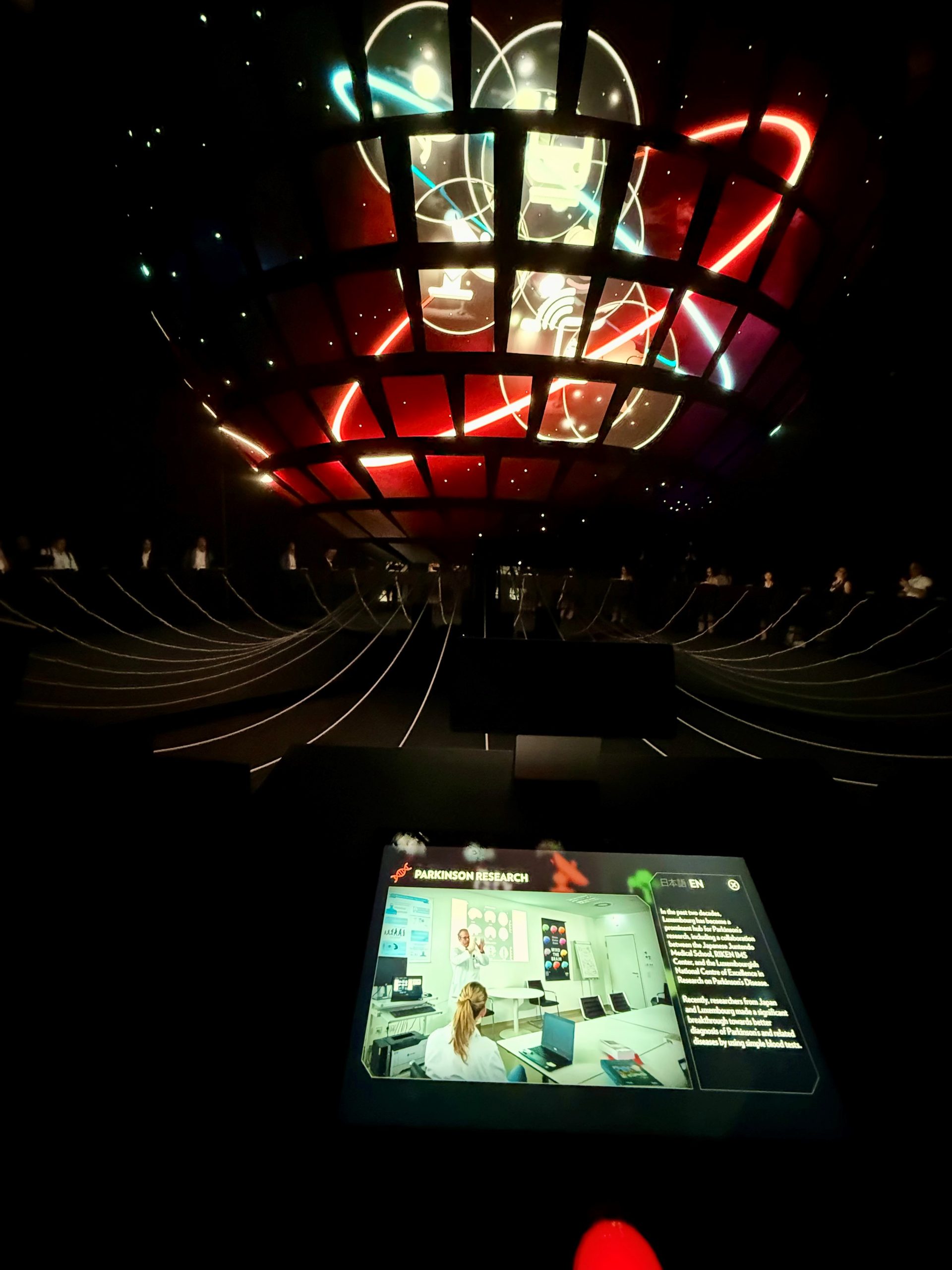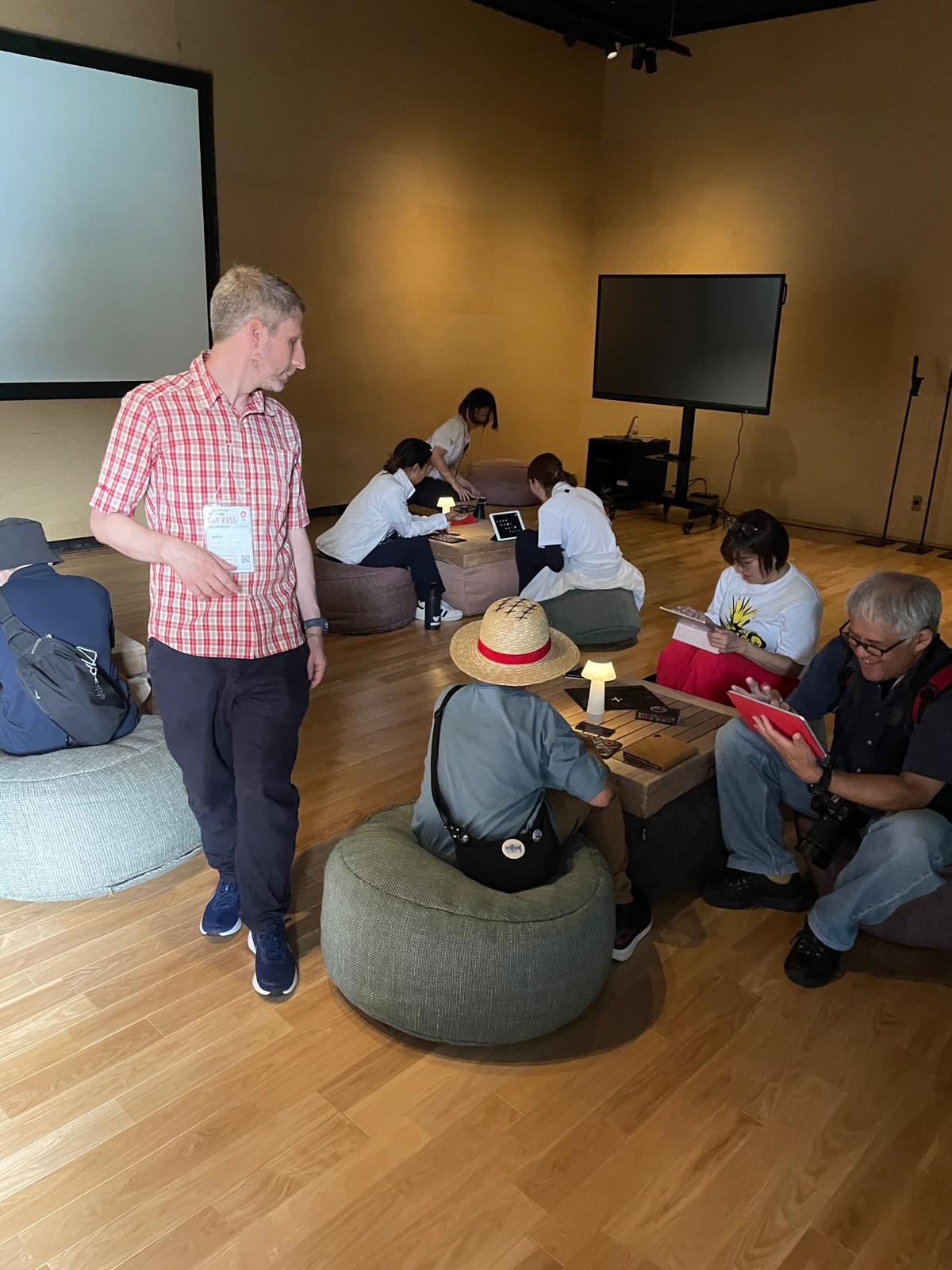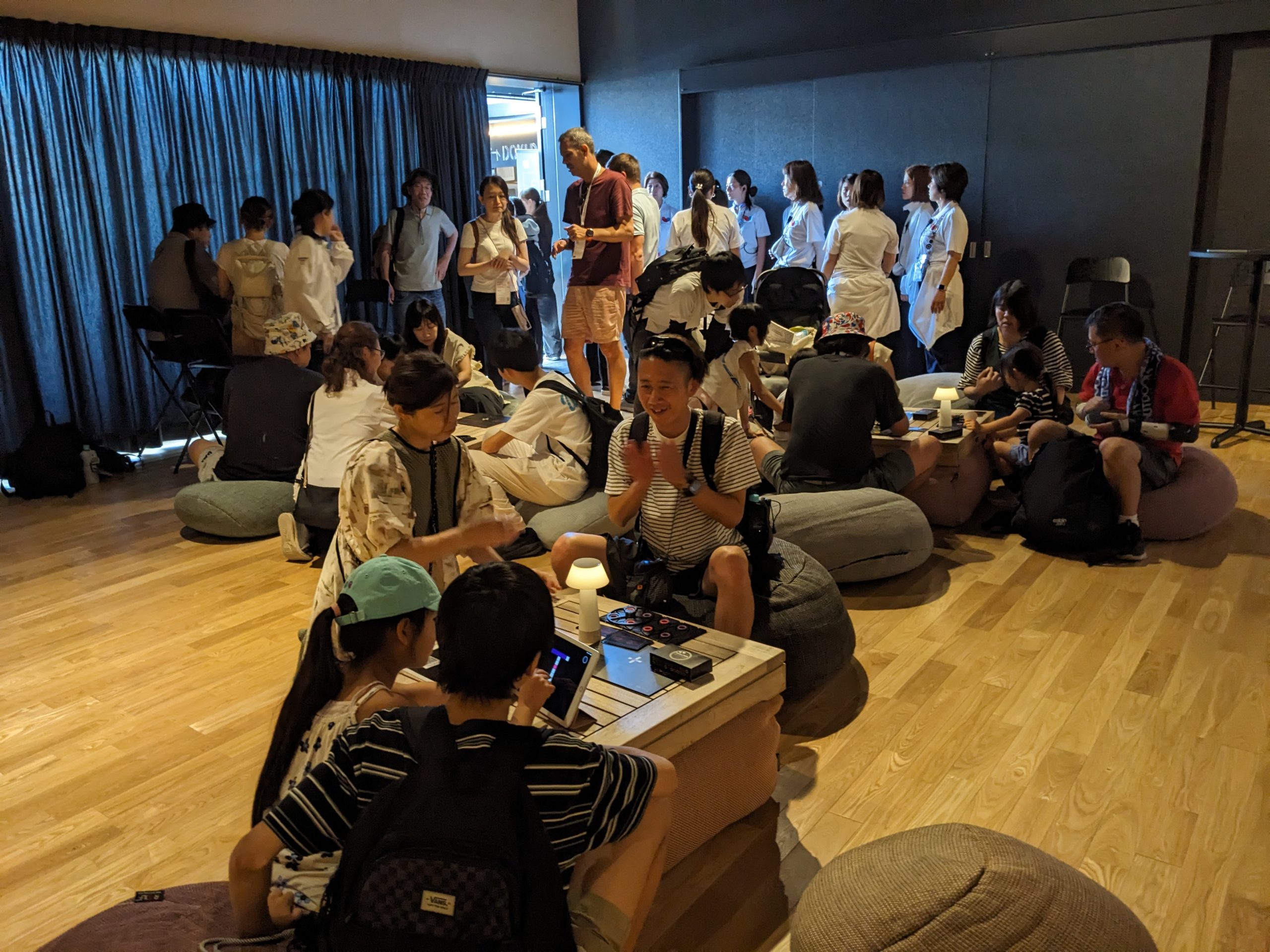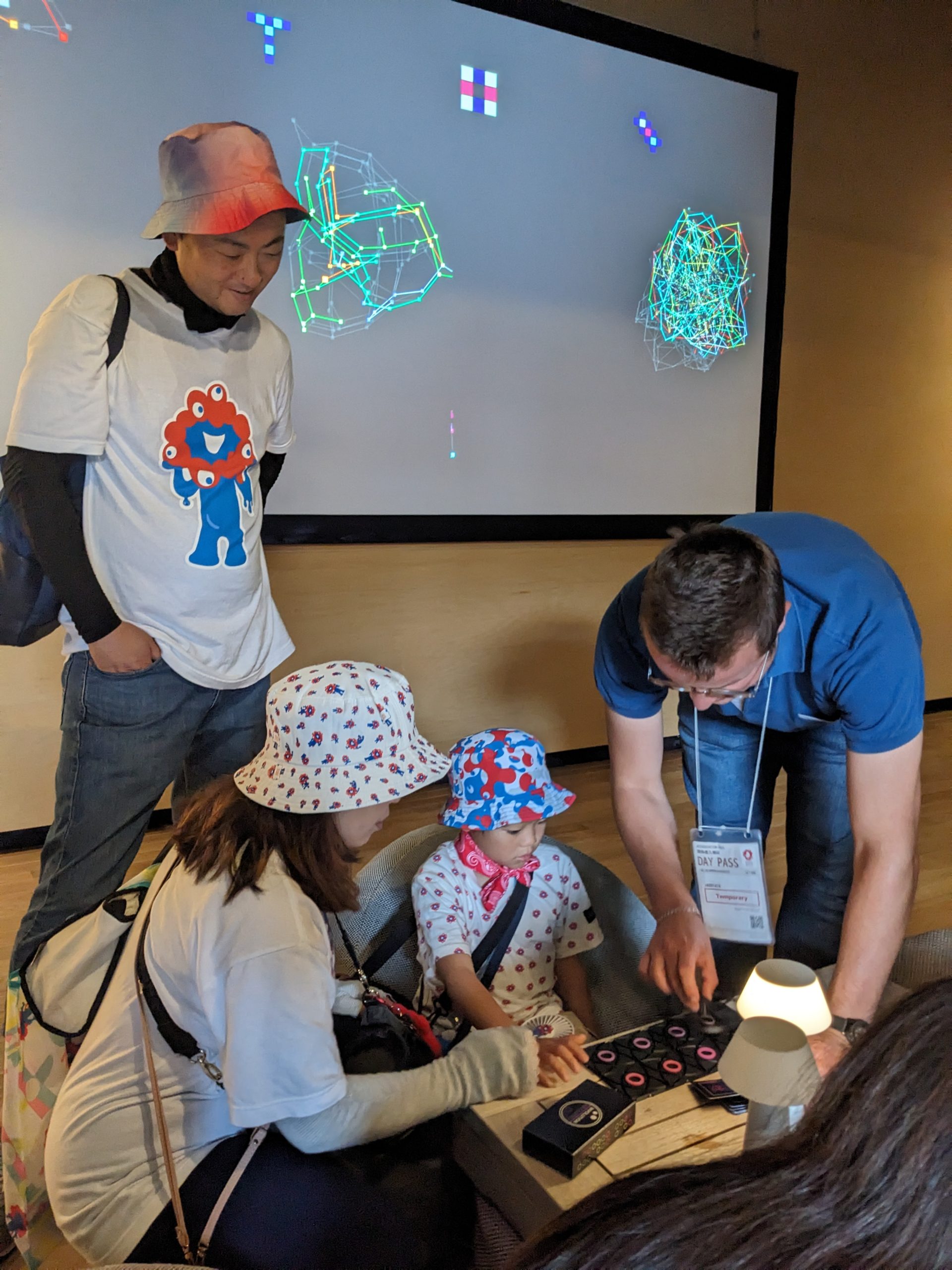Mathematics, a universal language
After their success at Expo Dubai 2020, mathematics researchers from the universities of Luxembourg, Liège and Fribourg collaborate to create playful and hands-on outreach, demonstrating how mathematics can foster intercultural dialogue beyond linguistic boundaries. From July 18 to 27, the “Traces” project includes two dedicated interactive installations:
- “Life Lines” invites participants to contribute to a collective artwork by adding a drawing powered by mathematics. This activity showcases the unifying power of mathematics, where individual creative expressions contribute to a shared narrative.
- “Patterns” invites people to solve puzzles inspired by geometric designs. Through simple, yet generative rules, participants will uncover the hidden beauty of mathematical structures. This intuitive and non-verbal approach makes the workshop accessible to a young and international audience.
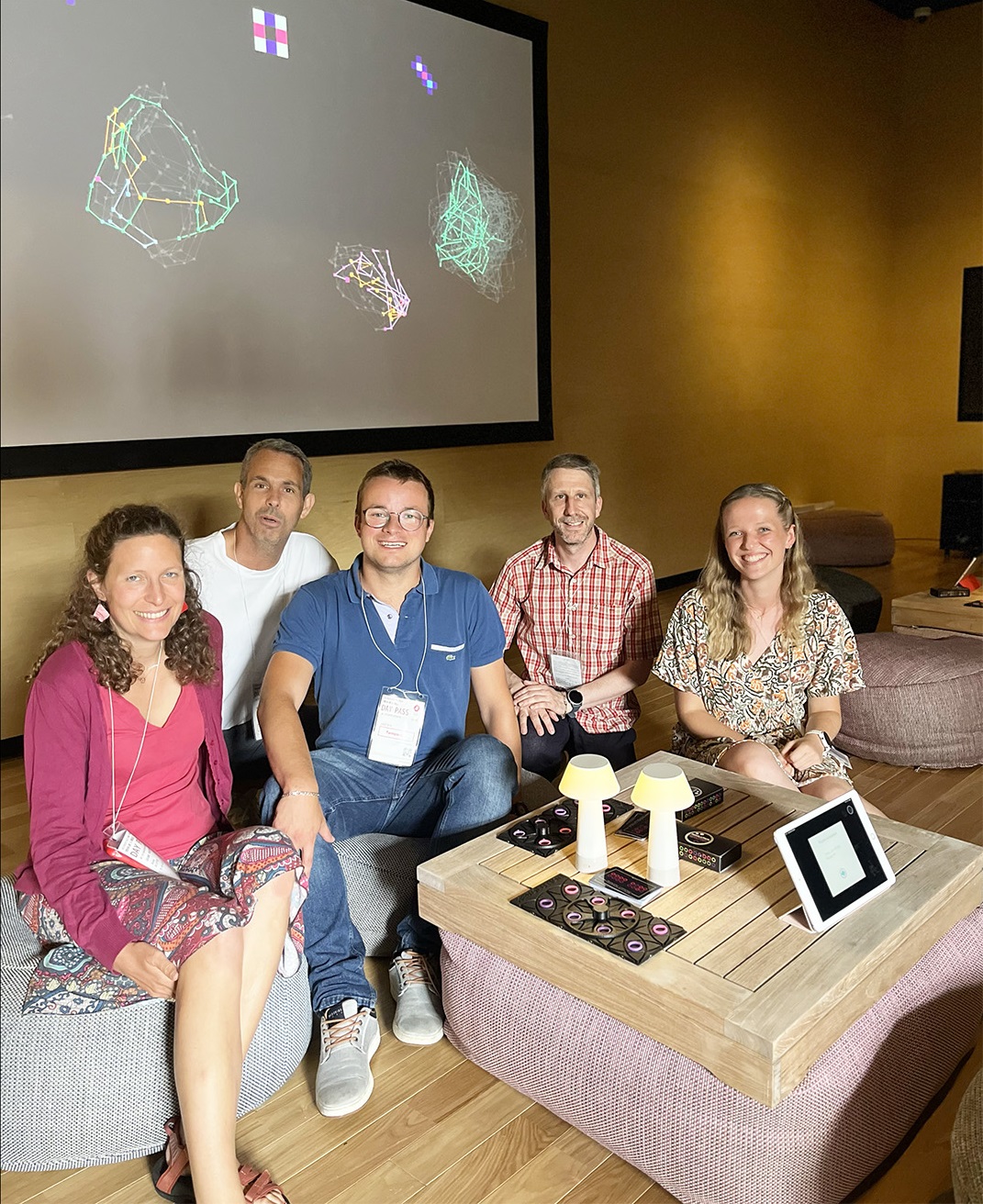
From left to right: Ann Kiefer, Hugo Parlier, Laurent Loosveldt, Bruno Téheux, Anne Fisch
The workshops are hosted on the Luxembourg Pavilion continuously, with special events on the Belgian Pavilion July 19 and 20 and on the Swiss Pavilion on July 23 and 24.
The mathematics team is led by Prof. Hugo Parlier (Fribourg) and Prof. Bruno Teheux (Uni.lu), and the activities are co-animated with Dr. Ann Kiefer (Uni.lu), Prof. Laurent Loosveldt (ULiège), and the PhD candidates Marie Abadie, Bruno Dular and Anne Fisch from Uni.lu.
“Engaging with the Japanese public is a stimulating challenge”, the team acknowledges, fully aware of the demands of culturally adapted communication. Our activities connect deep mathematics, games and art in the simplest way, attracting over 500 daily active participants”.
Discover people and research on neurodegenerative diseases
The Idea Hall introduces Luxembourg as a test bed for future technologies. It highlights research carried out at the Luxembourg Centre for Systems Biomedicine and other partners as part of the National Centre of Excellence in Research on Parkinson’s Disease in an interactive exhibit. Luxembourg’s Parkinson’s research fosters longstanding ties with Japan: a collaboration with Japanese researcher Prof. Nobutaka Hattori from the RIKEN Centre for Brain Science recently led to the discovery of pathological forms of the alpha-synuclein protein present in the blood of patients. This could be used for the diagnosis of Parkinson’s disease and its differentiation from several other neurodegenerative motor disorders.
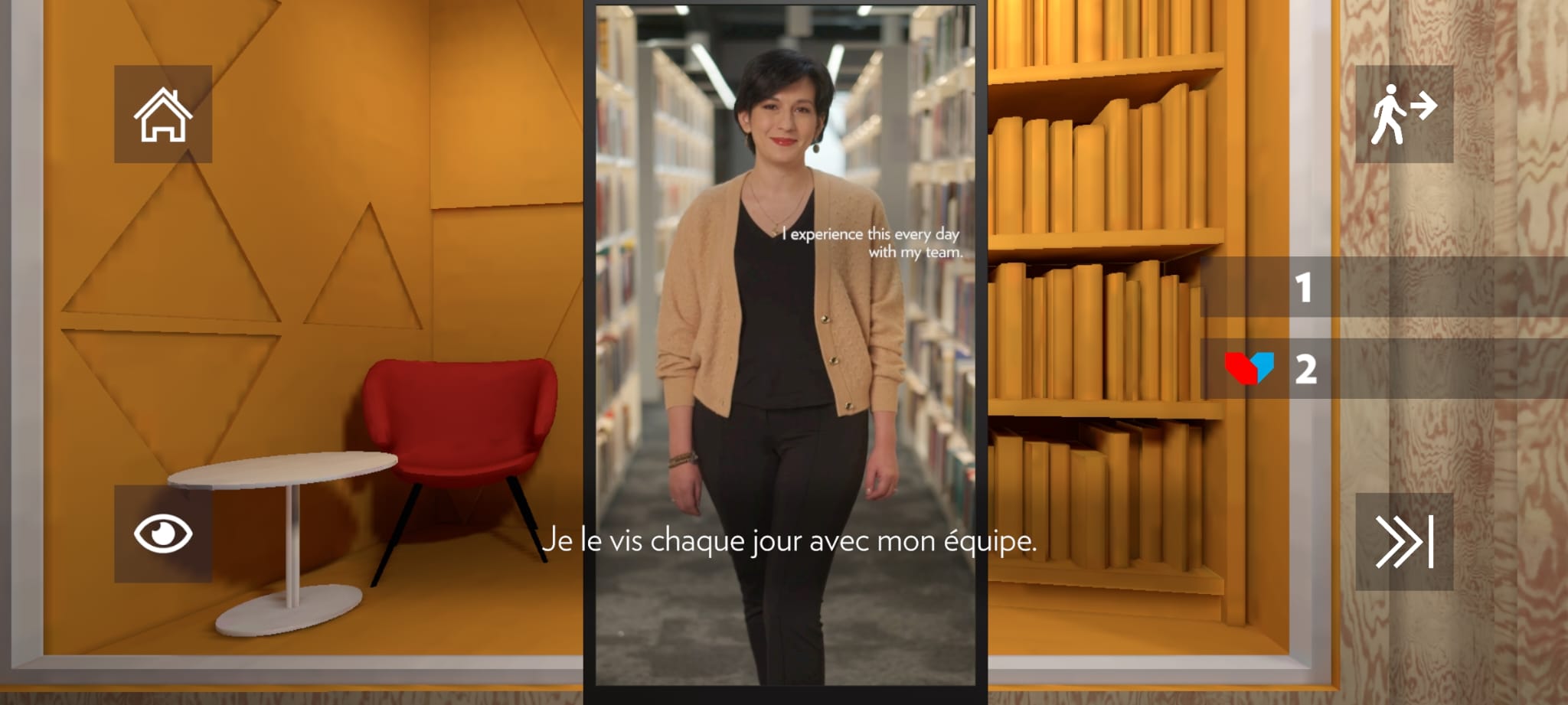
Prof. Djamila Aouada
Prof. Djamila Aouada, expert in computer vision at the Interdisciplinary Centre for Security, Reliability and Trust (SnT), welcomes visitors early in the People Hall. Her video message introduces Luxembourg’s excellent conditions and environment for innovation and collaboration. The newly appointed deputy director of SnT tackles image analysis and artificial intelligence, including deepfake detection.
If you can’t make your way to Osaka, discover Djamila Aouada and the LCSB research on the Luxembourg Pavilion app!
